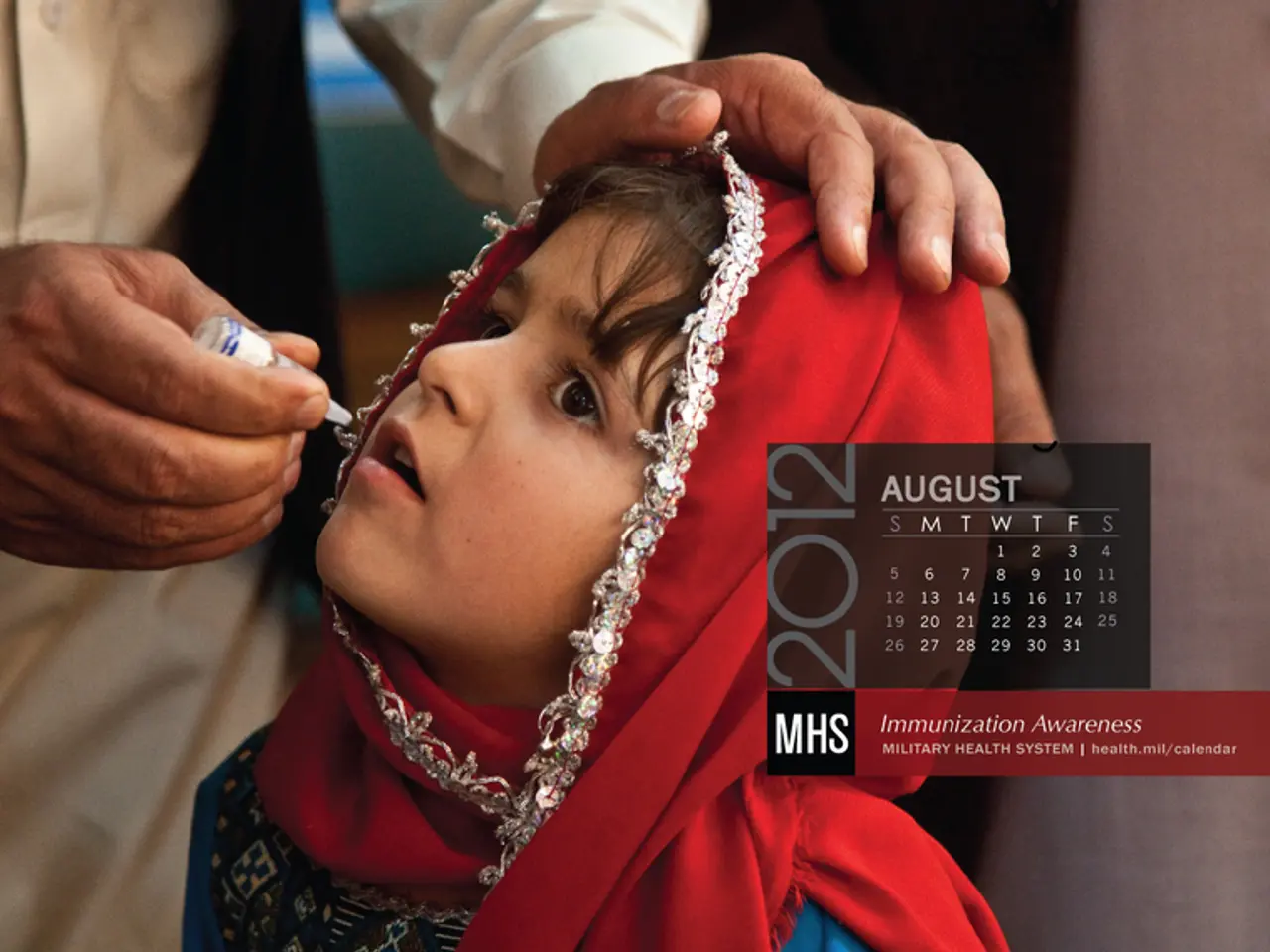Question: Is it possible for individuals with weakened immune systems to receive vaccinations?
In the complex world of vaccinations, individuals with compromised immune systems face unique challenges and considerations. This is particularly true for live virus vaccines, which can pose a significant risk to those with weakened immune defenses.
Live-microbial (live-virus) vaccines, such as the chickenpox vaccine, measles, mumps, and rubella (MMR) vaccine, yellow fever vaccines, and the FluMist® version of the flu vaccine, are generally contraindicated for immunocompromised patients. These individuals, including those undergoing high-dose corticosteroids, chemotherapy, immunomodulators, or radiation therapy, should usually not receive live-virus vaccines because they can cause severe or even fatal infections [1].
However, vaccines that do not contain live organisms, such as pneumococcal and influenza vaccines, are generally safe and recommended. While immune responses might be suboptimal, requiring additional doses or boosters to achieve protection, these vaccines are crucial for immunocompromised individuals, who are more vulnerable to severe illness from infections like COVID-19 or pneumococcal disease [2][3].
Transplant recipients and those on dialysis, who are also at increased risk for infections, benefit from vaccination. Although vaccine responses are less robust, COVID-19 vaccines are safe and important, with no evidence of increased organ rejection risk after additional doses. Staying up-to-date is critical [4].
Maintaining high vaccination coverage in the general population is essential to protect immunocompromised individuals indirectly, a concept known as herd immunity. Any policy or public attitudes that reduce vaccine coverage threaten this protective effect [5].
Clinical guidance and expert consultation are essential when making vaccination decisions for immunocompromised patients, especially those on long-term immunosuppressive therapy. Collaboration with healthcare providers specialized in immunocompromise is strongly advised [1].
A more effective, inactivated vaccine called Shingrix® came out in 2020, providing an alternative for immunocompromised individuals who were previously unable to receive the shingles vaccine.
While it's not unusual for people who've been vaccinated against COVID-19 to get a breakthrough infection, particularly before herd immunity is established, it's important to remember that vaccines still offer significant protection against severe disease.
If you're immunocompromised, it's crucial to discuss each potential vaccine with your doctor, as well as alternative prevention methods. Together, you can run through your options and make an informed decision [6].
All COVID-19 vaccines currently available in the U.S. are inactivated, meaning you cannot get COVID-19 from them. However, you may not get the same level of protection from the COVID-19 vaccine that other people do.
In summary, vaccination in immunocompromised persons requires selective use of safe vaccines (mostly non-live), awareness of potentially reduced immune responses, consideration of timing with immunosuppressive treatments, and reliance on community-wide herd immunity for added protection. Close collaboration with healthcare providers specialized in immunocompromise is strongly advised.
- In the realm of health-and-wellness, managing chronic diseases like rheumatoid arthritis becomes even more critical for those with compromised immune systems, as they may require carefully selected vaccines, such as the inactivated shingles vaccine, for protection against medical-conditions like shingles.
- Embracing a lifestyle that champions health awareness can help immunocompromised individuals make informed decisions about their vaccinations, such as understanding the safety and importance of vaccines like the inactivated COVID-19 vaccines, even though their immune responses might be less robust compared to healthy individuals.
- As science continues to advance, research into creating more effective vaccines for immunocompromised individuals becomes increasingly important, especially for addressing chronic diseases like chronic infections or recurring medical-conditions, leading to a healthier and more equitable lifestyle for everyone.




